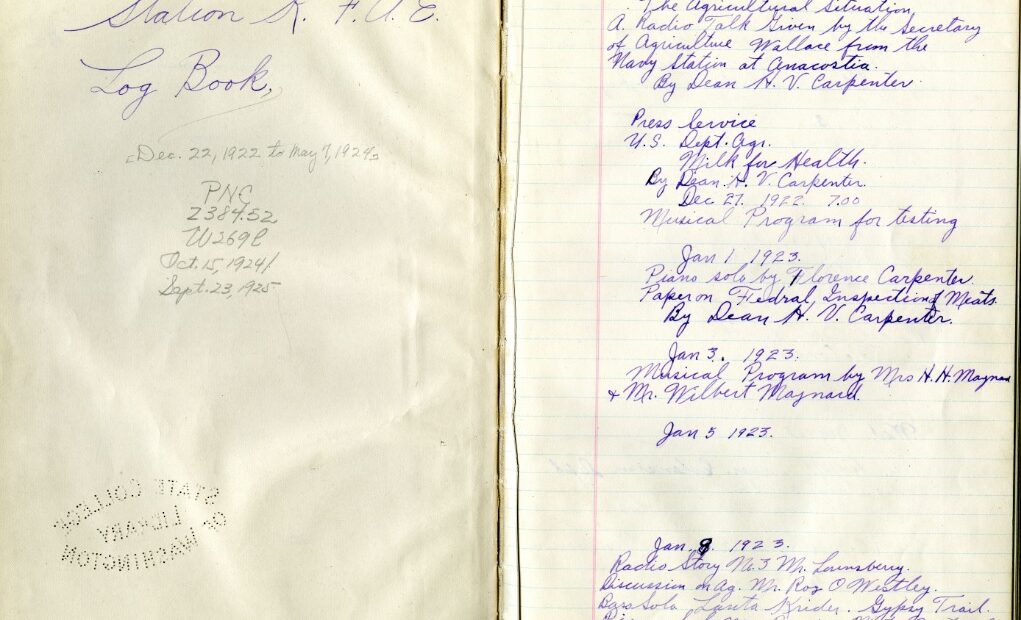
What Was NWPB Playing in 1923?
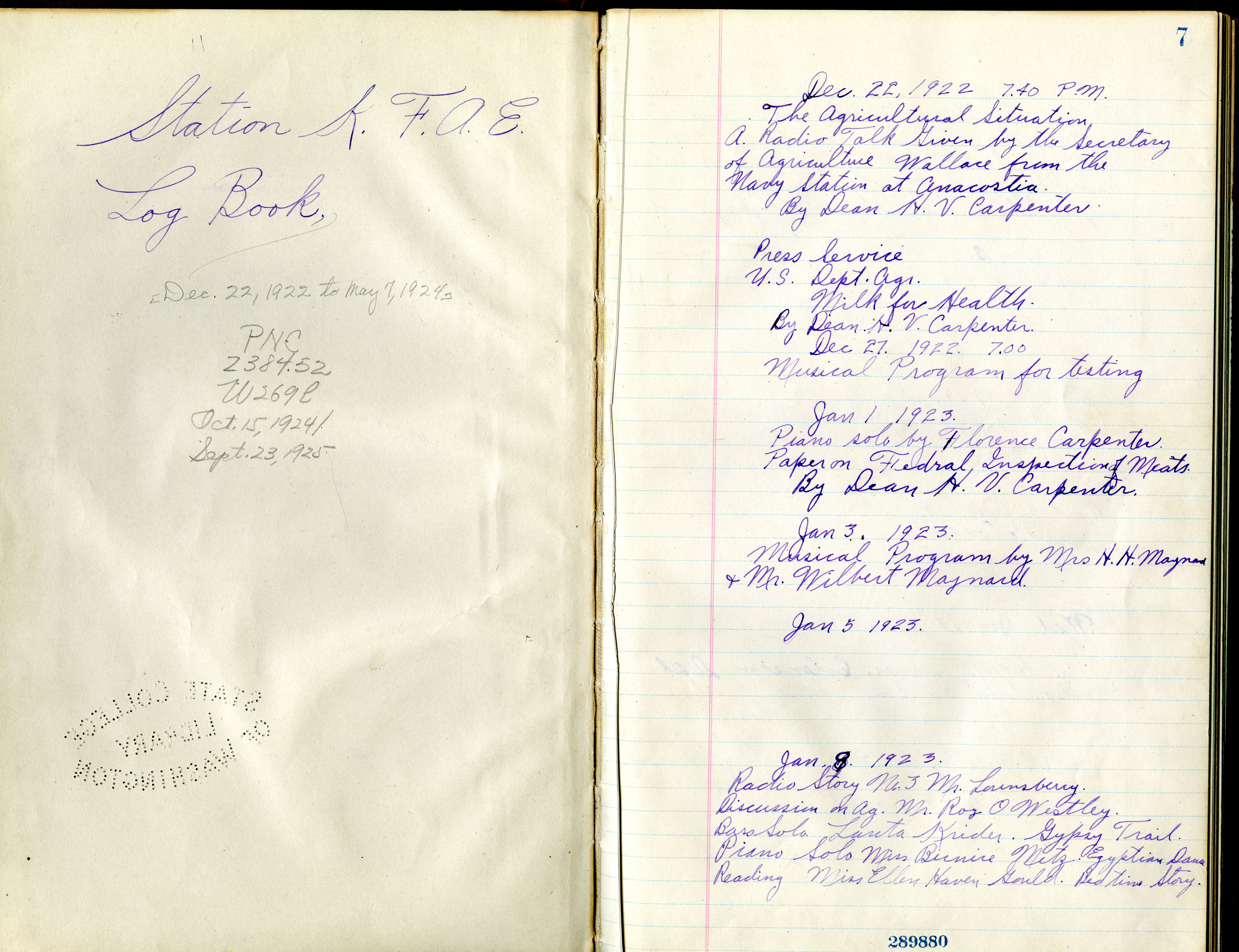
When you come to Northwest Public Broadcasting in 2022, you can do so anytime, 24 hours a day. But a century ago, when flagship station KFAE first went on the air, you would have had a very narrow window, because it only broadcast for brief periods in the evening, and with an irregular schedule. It actually shared a frequency with a church-licensed station in Seattle.
On January 9, 1923, just a month after KFAE signed on for the first time, you would have heard a sequence that included a so-called “radio story,” an agriculture-themed discussion, and a “bedtime story,” with two little musical selections along the way: a baritone solo and a piano solo–Rudolf Friml’s Egyptian Dance, played by Bernice Metz, WSU Class of 1928, a pianist and a member of the Women’s Glee Club.
The Czech-born Friml, a student of Antonín Dvorák at the Prague Conservatory, had achieved great fame with his songs, salon pieces and musical theatre scores. He wrote the Egyptian Dance in 1908.
In fact, all of the content you would have heard on this service during its first five-plus years would have been transmitted live. The federal government had instituted a ban on recorded music, and the major stakeholders initially embraced it. The musicians’ unions viewed radio as a fresh opportunity for additional work, and the major recording companies disliked the sound of their discs as broadcast over the airwaves. That would not change until the late 1920s, when “electrical” recordings fully overtook the earlier acoustic process. Hence, the wealth of lectures by faculty and guests during the infancy of KFAE, a station described by one community leader in Pullman as the “radio outfit at the State College.”
On January 26, 1923, sports made its debut on the station, with a live broadcast of a Cougar men’s basketball game. Music and the fine arts made only incremental gains over the first decade, as the oversight committee named by WSU President Ernest Holland put greater emphasis on agricultural, technical, scientific and business talks. What the leadership understood from the start, though, was radio’s capacity for “human service” across the region, which remains NWPB’s mission to this day.
Northwest Public Broadcasting. 100 years. 100 stories.
Related Stories:
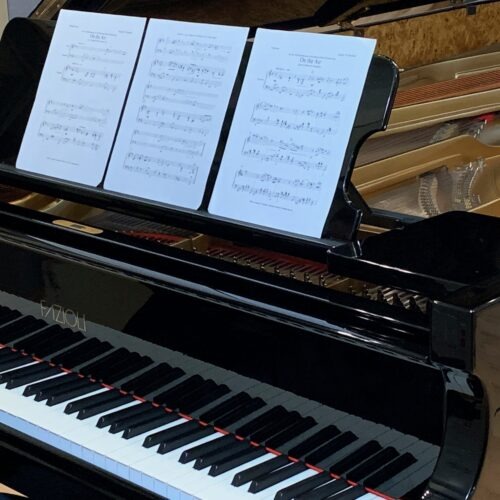
Spirited, Jazzy, Lyrical: A New Fanfare For NWPB’s Centennial
From our very first broadcasts, in December 1922, music has been an important, and popular, part of this station’s programming. Listeners were thrilled to hear music on the new medium of radio, so a partnership quickly developed between the station (then known as KWSC) and the Washington State College School of Music. 100 years on, the collaboration continues.
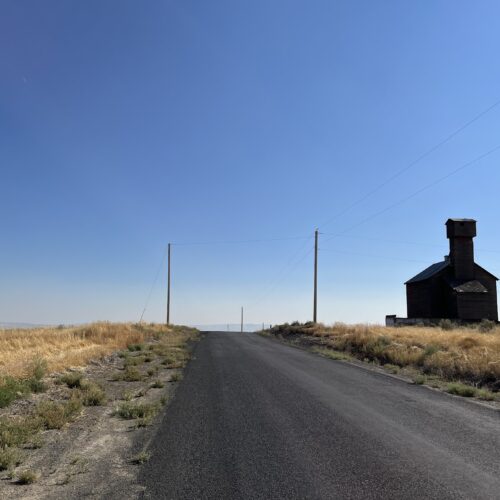
Gravity Hill – the hill so nice I rolled down it twice
Gravity Hill on North Crosby Road near Prosser, WA. Listen Runtime 4:16 Read Past hop trellises, fruit orchards and rye fields, down a lonely stretch of road near Prosser, Washington
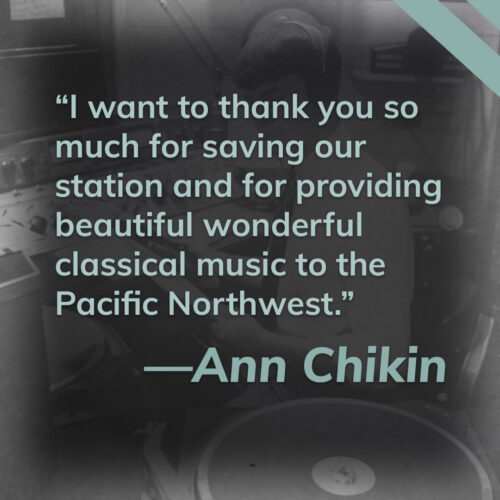
“I want to thank you so much for saving our station and for providing beautiful, wonderful classical music to the Pacific Northwest.”
“I want to thank you so much for saving our station and for providing beautiful, wonderful classical music to the Pacific Northwest.” Ann Chikin Bellingham, WA This is Ann Chikin.















